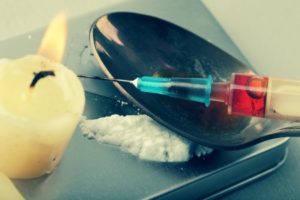 That said, we do not find that the prosecutor had an obligation to subpoena or otherwise obtain defendant’s medical records in this case. At most, the records have only limited probative value under N.J.R.E. 401 as corroborative proof, arguably to rebut the State’s claim that a lay perception of a drug overdose here would be untenable.
That said, we do not find that the prosecutor had an obligation to subpoena or otherwise obtain defendant’s medical records in this case. At most, the records have only limited probative value under N.J.R.E. 401 as corroborative proof, arguably to rebut the State’s claim that a lay perception of a drug overdose here would be untenable.
As we have already noted, the focus of the statute is on a layperson’s reasonable perception. Indeed, it is conceivable in some instances that OPA immunity could still apply if a layperson observing a subject reasonably believed that person had an acute condition satisfying the definition of N.J.S.A. 24:6J-3, even though medical professionals later concluded that the person had not been in such a severe state. In any event, we find no prosecutorial misconduct occurred here, despite the inaccurate ad hoc response supplied to the grand jurors about medical confidentiality.
For these reasons, the trial court’s order dismissing the indictment is vacated without prejudice, and the matter is remanded for further proceedings consistent with our opinion.
The trial court shall duly consider defendant’s custody or bail status in the interim. We do not retain jurisdiction.
In the court’s discretion, we do not disclose defendant’s identity in this published opinion. We shall use initials for him to avoid discouraging other persons who may be covered by the statutory immunity from seeking medical assistance.
Note that New Jersey also has a somewhat analogous statute, which grants immunity to underage drinkers who call for medical assistance for themselves or another underage drinker who appears to need medical assistance. N.J.S.A. 40:48-1.2a. Unfortunately, very few people are aware of this statute. This is particularly true of young people under the age of 21. This matter of life and death should be a standard part of high school curriculums in New Jersey.
“‘Medical assistance’ means professional medical services that are provided to a person experiencing a drug overdose by a health care professional, acting within the scope of his or her lawful practice including professional medical services that are mobilized through telephone contact with the 911 telephone emergency service.” See L.2013, c. 46. The salient difference is the insertion in 2015 of the term “health care practitioner.” Indisputably, in the present case, defendant was treated by health care practitioners after his condition was reported by the police officer.
Because no model charges under the OPA presently exist, we respectfully refer our opinion to the Model Criminal Jury Charge Committee for its consideration.
